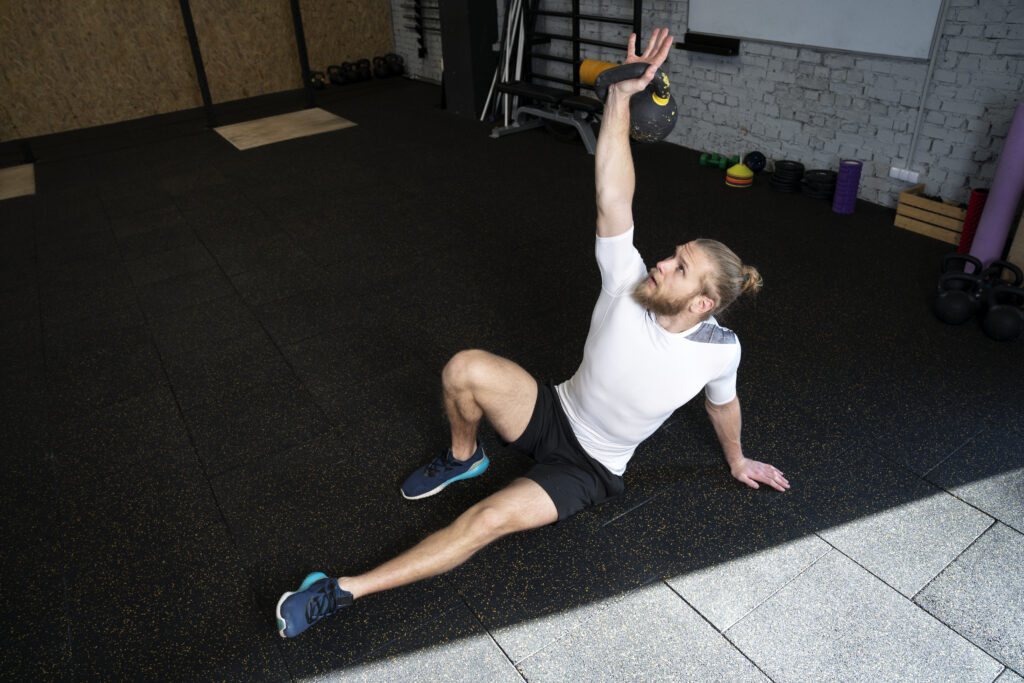Introduction
There was a thought-provoking article published in the New York Times this week, titled Do We Age Steadily, or in Bursts? New technologies are giving scientists a better understanding of how the process actually works. As someone in the middle of these age groups, I get what the author, Mohana Ravindranath, so eloquently writes about. On the bright side, of all the physiological changes that occur, a regular prescription of strength training and healthy eating can retard the majority of changes.
New York Times Article
The article discusses research suggesting that the biological aging process is not a steady decline but rather occurs in bursts around ages 34, 60, and 78. These bursts are marked by significant changes in blood proteins, affecting cellular function and metabolism.
The research, published in Nature Medicine in 2019, analyzed nearly 3,000 plasma proteins from over 4,000 adults. The analysis revealed that the most dramatic changes in these proteins, indicative of accelerated aging, occurred around ages 34, 60, and 78.
The Key Drivers that Begin to Shift
To support healthy aging and retard age-related decline at ages 34, 60, and 78, it’s helpful to understand the biological changes happening at each stage and what research-backed interventions are most effective. Here’s a breakdown by age, focusing on modifiable key drivers of aging:
Age ~34: Foundation Phase – Metabolic & Cellular Maintenance
▶ Key Drivers That Begin to Shift:
- Gradual decline in growth hormone and sex hormones (testosterone/estrogen)
- Cellular senescence begins to increase
- Early metabolic slowdown (especially after 30)
- Beginning loss of mitochondrial efficiency
Evidence-Based Interventions:
- Strength and HIIT Training
- Increases mitochondrial biogenesis and metabolic rate.
- Study: HIIT has been shown to improve mitochondrial function in older adults (Robinson et al., Cell Metabolism, 2017).
- Sleep Optimization (7–9 hours/night)
- Poor sleep accelerates biological aging markers like telomere shortening and inflammation.
- Study: Poor sleep linked to advanced epigenetic aging (Carroll et al., 2017)
- Intermittent Fasting or Time-Restricted Eating
- Can enhance autophagy and improve metabolic health.
- Study: 16:8 fasting improves insulin sensitivity and weight control (Sutton et al., Cell Metabolism, 2018)
- Minimize Ultra-Processed Foods
- Preserves gut health, which plays a central role in immune regulation and inflammation.
Age ~60: Immune System and Inflammaging Spike
▶ Key Drivers That Accelerate:
- Immunosenescence (aging of the immune system).
- Chronic low-grade inflammation (“inflammaging”).
- Declines in muscle mass (sarcopenia) and bone density.
- Decreased hormone production and mitochondrial efficiency.
Evidence-Based Interventions:
- Resistance Training 2–3x/week
- Prevents sarcopenia and improves insulin sensitivity.
- Study: Resistance exercise increases longevity and functional health (Fragala et al., 2019)
- Anti-Inflammatory Diet (Mediterranean-style)
- Reduces markers of inflammation and supports cardiovascular and brain health
- Study: MIND and Mediterranean diets linked to slower cognitive decline (Morris et al., 2015)
- Vitamin D, Omega-3s, and Creatine
- Support immune health, cognition, and muscle function.
- Creatine shown to improve muscle mass and cognition in aging adults (Forbes et al., 2021)
- Regular Cognitive Engagement
- Keeps neural networks active and builds “cognitive reserve”.
- Study: Lifelong learning and social engagement reduce Alzheimer’s risk (FINGER trial, Ngandu et al., 2015)
Age ~78: Frailty, Cognitive Decline, and Cellular Exhaustion
▶ Key Drivers That Need Support:
- Frailty risk, loss of independence.
- Accelerated mitochondrial dysfunction.
- Declining cognitive reserve.
- Decreased stem cell renewal and repair mechanisms.
Evidence-Based Interventions:
- Protein Intake (1.2–1.5 g/kg/day)
- Supports muscle maintenance and immune function.
- Study: Higher protein intake linked to better physical performance in older adults (Houston et al., 2008).
2. Functional Exercise (Tai Chi, Balance Training)
- Prevents falls and maintains mobility and independence.
- Study: Tai chi reduces fall risk in older adults by over 20% (Li et al., 2005).
3. Polyphenol-Rich Foods (berries, green tea, dark chocolate)
- May protect brain function and reduce oxidative stress.
4. Cognitive Stimulation + Social Interaction
- Continues to protect against dementia and mood decline.
- Study: Social isolation associated with 50% higher risk of dementia (Alzheimer’s Association, 2023).
Summary
Approximate Age
Key Drivers to Target
Research-Based Strategies
34
Hormonal balance, metabolism, cell repair
HIIT, fasting, sleep, strength training
60
Inflammation, muscle loss, immunity
Resistance training, anti-inflammatory diet, omega-3s, cognitive activity
78
Frailty, cognitive decline, mitochondrial dysfunction
| Protein, balance/fall training, polyphenols, social/cognitive engagement |
Final Thoughts: Strength & Nutrition Are Your Best Defense Against Aging
While aging is unavoidable, how we age is largely within our control. Strength training helps preserve muscle mass, boost metabolism, and improve balance—key factors in staying independent and injury-free. Pairing this with a nutrient-dense diet rich in protein, healthy fats, fiber, and antioxidants reduces inflammation and supports brain and immune health.
Together, these two strategies form a powerful defense that can slow biological aging, maintain vitality, and improve quality of life—whether you’re 34, 60, or 78.
Jefit: Embrace the Grind
If you’re serious about building muscle, tracking workouts, and reaching your fitness goals in 2025, the Jefit strength training app is the perfect tool to help you succeed. With over 20 million downloads and 12+ million users, Jefit is one of the best tracking apps for strength training. Recognized as the Best Fitness App of 2024 and featured in Men’s Health, PC Magazine, and USA TODAY, Jefit stands out with its user-friendly design, advanced workout tracking, and over 42,000 five-star ratings. Whether your goal is to gain strength, track progress, or optimize protein intake, Jefit has everything you need. Remember, sustainable progress is built on consistency, science, and patience.
- Training Specificity: Why Workouts Must Match Your Goals - February 11, 2026
- Chrono-Nutrition to Improve Strength Training - February 4, 2026
- Velocity-Based Strength Training: Lift Smarter, Not Heavier - January 28, 2026
